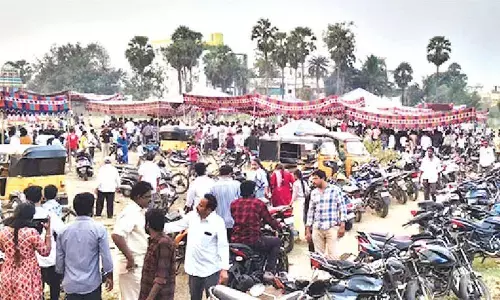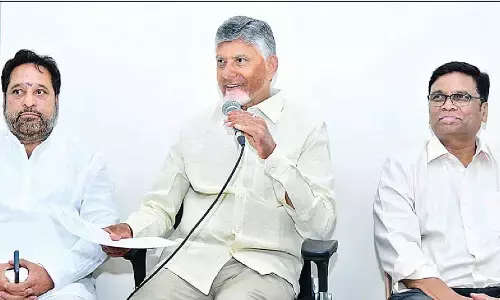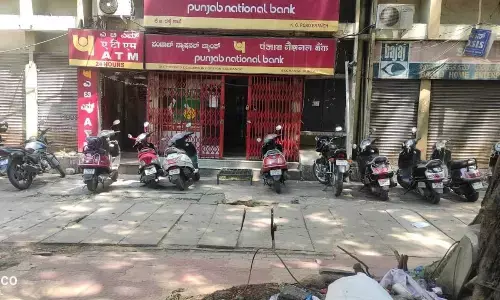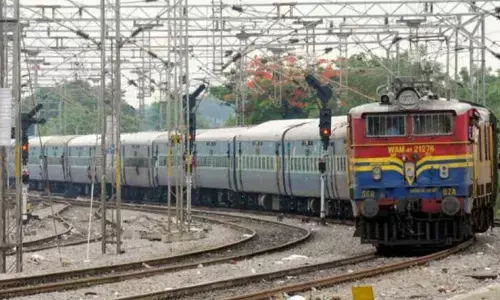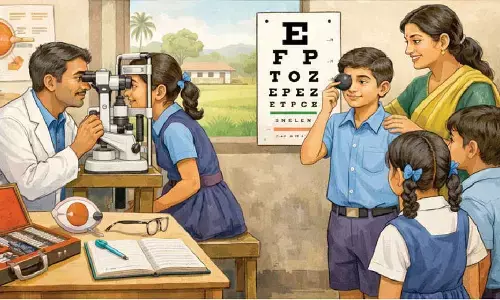Two years of TDP rule has not galvanized people, finds study
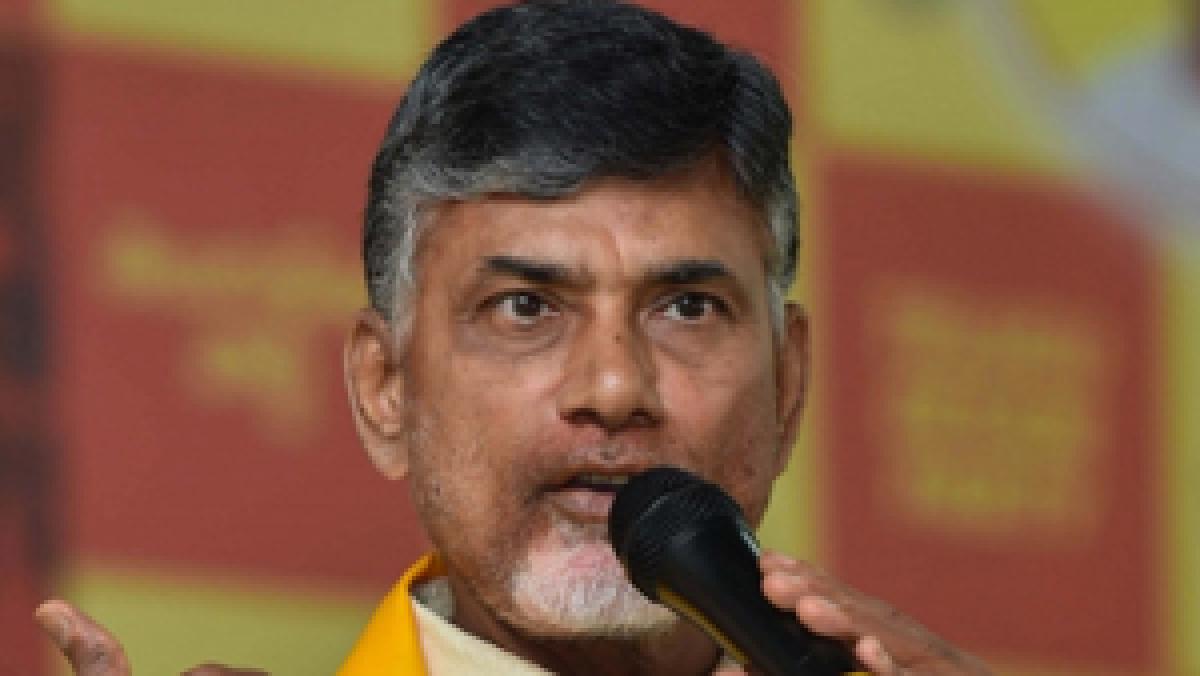
Two years of TDP Government in Andhra Pradesh made no difference to a higher percent of people of the State on proof of pudding indicators like employment and in their availing basic public services.
Two years of TDP Government in Andhra Pradesh made no difference to a higher percent of people of the State on proof of pudding indicators like employment and in their availing basic public services. No single new scheme could be said as caught the imagination of people. But improvement on the availability of electricity, both in rural and urban, has been a saviour of the grace of Chandrababu.
To some extent loan mafi and increased old age pension too are acknowledged. High expectations of people of Chandrababu “magic” may add to his woes surpassing satisfaction level with performance on the ground. For, although majorities are "not sure" of accomplishments on poll promises sofar, they do expect positive results next couple of years. Relatively, young are not as positive as the older age are, about and towards Chandrababu Government.
This, in a nutshell, is a key summing of an extensive field study of CMS on the eve of completion of two years of TDP Government in Andhra Pradesh. This unique study was specially designed to capture the undercurrent on the functioning aspects of Chandrababu Government. CMS has been a pioneer in assessing public moods and in tracking corruption in public services. The study was conducted in ten districts spread across three regions and reflective of demographics of Andhra Pradesh with a proportionate to the population sample.
With this study, New Delhi-headquartered CMS is reentering the field that it had quit a decade ago having been the foremost professional in the country to take to public assessment studies on governments, Ministries, public services and poll politics.
On the political front, much over half of the respondents think TDP has not gained in its public standing during the two-year period it had been in power. But then the only other perceived alternative, "Jagan Congress", has not gained either, indicating of a vacuum in the political scene of the reconstituted state. But converting the responses in terms of electoral prospects, polarization is between TDP and YSR Congress with Congress party not in reckoner or not much of a factor. As compared to 2014, the voting intention in favour of TDP has declined, marginally to significantly from one district to another.
"Going by these findings, there is no indication that Chandrababu has consolidated his political prospects in the State commensurating his frequent crisscrossing the districts", observed Dr. N Bhaskara Rao, Delhi-based well-known performance analyst and founder of 26-year-old CMS. The AP scene today is both confusing and contradictory, he notes. An "events and incidents" orientation is unlikely to sustain schemes and make a difference ahead, Dr. Bhaskara Rao summed up.
While sincerity of Chandrababu is not doubted, and his hard work is appreciated by a high majority, it is sympathy for him which has gained more than support for his Government. But, two-thirds opined that no one else as CM of the State at this critical juncture would have done as much or any better than Chandrababu. About one-third view no better alternative to Chandrababu. His priorities and preoccupations, however, are not so much appreciated by half of them. A significant percent of farmers continue to be restless or disappointed with Government. A significant percent think that not everything the Government is going about is being revealed to the public.
There is an apprehension, more in some districts, about State remaining intact united and cohesive. There are fears among a quarter of people of the state getting into a cycle of agitations on regional and communal sentiments. Although one-third or more think that all districts are not being developed equally, a majority expect better "bhavishyat" for the State.
There is no indication of TDP Government doing away with corruption tag. Despite the declaration of his assets regularly, and his interactivity, Chandrababu Government is not looked any differently than other corruption-ridden regimes or leaderships. Services of Revenue Department continue to be viewed in particular as most corrupt, followed by police, as ever before.
Certain anguish seems to build up against political leaders promoting "private schools" run as businesses, as better, ignoring and at the cost of "public schools". In fact, in rural more than two-thirds feel so.
An interesting finding of this study is that a high percent of Andhraites across perceive that Telangana State is doing better and its Government performance is seen, in comparison, as more adoptive and inclusive. Both States are viewed as one person-centric. No Minister in Cabinet is referred to Statewide as has come up with the supportive stature to Chandrababu.
Despite frequent pronouncements and showcasing, no evidence of people of the State gearing up to future challenges and opportunities by taking to digitalization advantages, solar devices, water conservation practices or social plantation. Neither of these schemes has gained ground to catch up with the ambitious way the state Chief Minister has been talking about.
Efforts of Chandrababu for the new capital of Amaravati are appreciated. But people are not overwhelmed by the "big picture" being projected about the capital. People of the State are not sure of having a "better Government” or a "more responsive and accessible Government" after Amaravati. Or that "big Capital" meant “Government coming closer to people". A majority also are not sure everything about the new capital is going well.
This CMS field study was conducted in mid-March 2016 at two levels, first with opinion makers at the district level who are not functionaries of any political party, and then with carefully selected voters who were personally interviewed using a structured questionnaire with scope for spontaneous responses. The study is an independent exercise of CMS. The study was based on time-tested three SSS model (size, spread and selection procedures) methodology.
A similar CMS nationwide field study on Modi Government completing two years is expected early May 2016.








